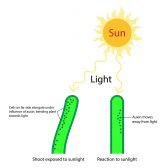Definition
noun, plural: mononuclear leukocytes
A leukocyte characterized by having a nucleus with only one lobe, as opposed to the other type with a nucleus with several lobes
Supplement
Leukocytes (also called white blood cells) are cells of the immune system and one of the cellular elements in blood. Unlike red blood cells, the leukocytes lack the hemoglobin pigment. Similar to red blood cells though, the leukocytes came from a hematopoietic stem cell (hemocytoblast). The hemocytoblast gives rise to progenitor cells of both the myeloid series and the lymphoid series. Leukocytes from the myeloid series include the granulocytes and the monocytes whereas those from the lymphoid series include the lymphocytes and the lymphoid dendritic cells. Based on the nuclear lobes, the leukocytes may be classified as polymorphonuclear (i.e. a nucleus with more than one lobe) or mononuclear (i.e. a nucleus with only one lobe).
The mononuclear leukocytes are those possessing a large nucleus with only one lobe. In contrast, polymorphonuclear leukocytes, such as granulocytes, are those with a nucleus that has more than one lobe. The mononuclear leukocytes include the mature lymphocytes and monocytes. They are transported by the blood to the body’s extravascular space.
Variant(s):
- mononuclear leucocyte
Compare:
See also:
- blood
- leukocyte
- lymphocyte
- monocyte







